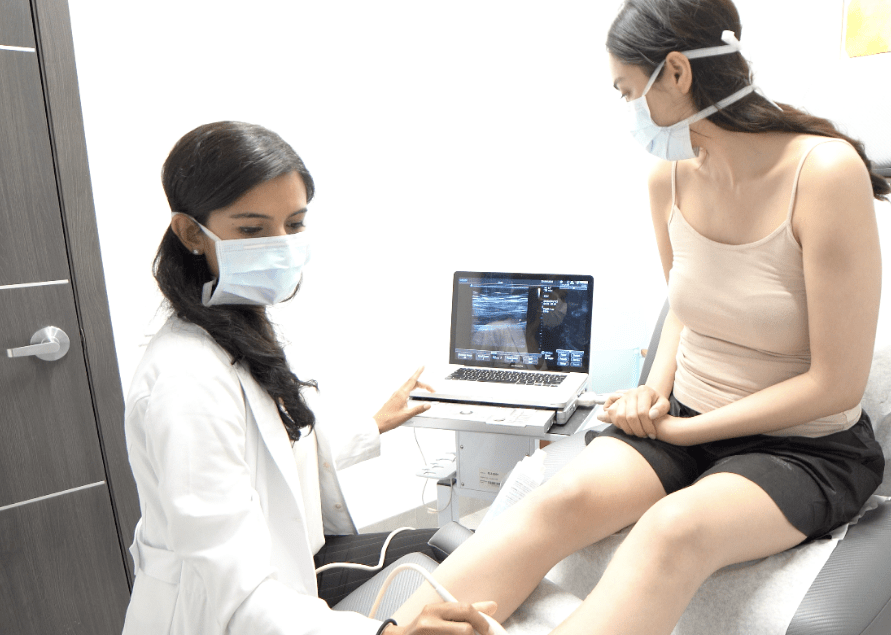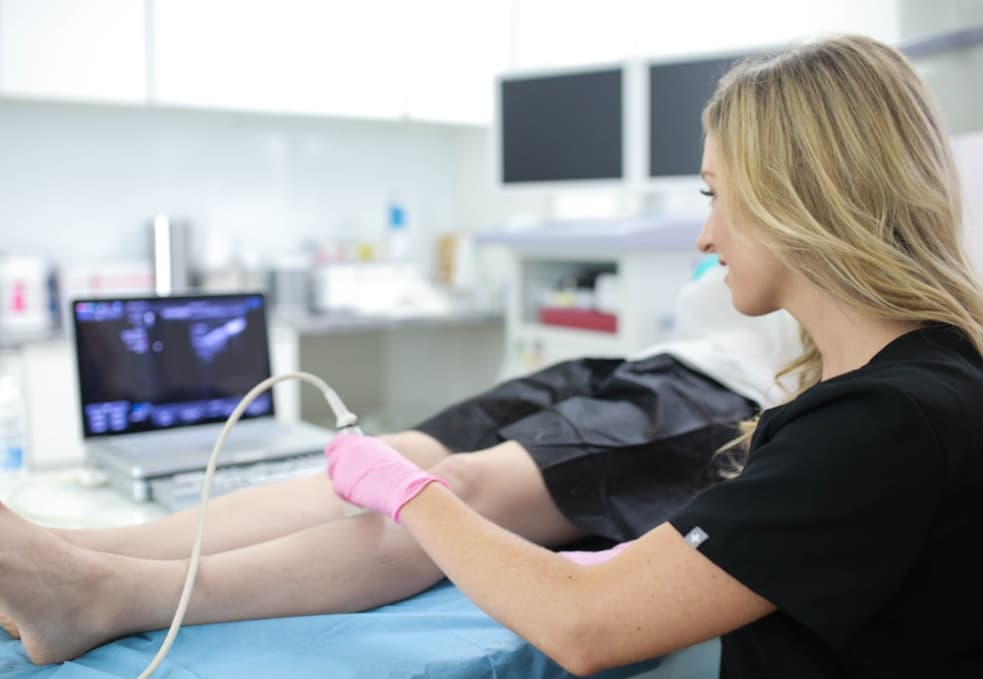What is varicose vein surgery?
If you’re asking about varicose vein surgery, you probably have varicose veins that you want to eliminate. If varicose veins are left untreated, they can eventually burst and cause profuse bleeding. You may also suffer from other major complications of chronic venous insufficiency, such as skin discoloration, leg ulcers, and deep vein thrombosis. That’s why you must find the best and most reliable treatments for varicose veins.
However, most reliable vein doctors will caution against varicose vein surgery. You may think varicose vein treatments are always surgical, but that’s simply not true. In the past, varicose veins and chronic venous insufficiency could only be treated via complex surgical procedures, such as vein ligation and vein stripping, but that’s no longer the case. Because of the recent developments in technology and vein care, you can remove varicose veins without undergoing surgery. In fact, minimally invasive varicose vein treatments are usually more effective than varicose vein surgery. Having offered that brief prelude to varicose vein surgeries, it’s time to answer your question: what is varicose vein surgery?
Varicose vein surgery is an informal term used to describe a group of surgical procedures for varicose veins, such as vein ligation, vein stripping, and venous bypass surgery. Varicose vein surgeries are complex procedures that must be performed by skilled vascular surgeons in state-of-the-art hospitals. Varicose vein surgery is usually performed under general anesthesia, so you aren’t awake for the procedure. The vein surgeon makes an extremely long incision to access your vascular network and remove the diseased saphenous vein responsible for your vein problems. After the procedure, the incision is sutured closed, and you can start the recovery process.
Our medical centers for vein treatment in Long Island only provide minimally invasive spider vein and varicose vein treatments. Our vein doctors perform duplex ultrasound tests to visualize the blood flow in your leg veins and diagnose chronic venous insufficiency, following which they curate a personalized vein treatment plan. Our minimally invasive procedures address the root cause of varicose veins, ensuring safe and long-lasting results. After vein treatment, you can resume your daily activities and work immediately — no downtime. If you have varicose veins or the symptoms of vein disease, please schedule an appointment at our center for vein treatment in Long Island.

What are the side effects of varicose vein surgery?
Now that you understand the basic premise of varicose vein surgery, it’s time to discuss the potential side effects of vein surgery. All surgical procedures carry an inherent risk of complications, such as infections and deep vein thrombosis. Whenever you enter the body through an incision, you expose the body to an infection. Of course, the best vascular surgeons implement the highest standards of safety guidelines and provide antibiotics to prevent infections, but the possibility can’t be ruled out completely.
The most common side effects of varicose vein surgery include pain and discomfort over the vein, bleeding, bruising, nerve damage, redness and swelling, and changes in skin color. Furthermore, infections and blood clots in veins (deep vein thrombosis) are the most dangerous potential side effects of vein surgery. In addition to being risky, varicose vein surgery also has a relatively high risk of vein disease recurrence, which means your vein problems can return later.
The best board-certified vein doctors only recommend varicose vein surgery in extreme cases or if all minimally invasive vein treatments fail. If your vein doctor recommends vein surgery as the primary or first solution, you should find another vein doctor.
Minimally invasive vein treatments: the ideal alternatives to varicose vein surgery
Minimally invasive spider vein and varicose vein treatments are the ideal alternatives to varicose vein surgery. Minimally invasive treatments are in-office and outpatient procedures that conclude within an hour, cause little to no pain and discomfort and involve a negligible risk of complications. Furthermore, minimally invasive vein treatments don’t necessitate hospitalization or downtime, so you can resume most of your daily activities immediately. Minimally invasive vein treatments also have a nearly perfect success rate and a negligible risk of vein disease recurrence. As such, minimally invasive vein treatments are more effective, safer, and more convenient than varicose vein surgeries.
The following are the best minimally invasive alternatives to vein surgery:
- Radiofrequency ablation
- Endovenous laser ablation
- Venaseal treatment
- Clarivein treatment
- Ambulatory phlebectomy
- Sclerotherapy
What happens if varicose veins are left untreated?
Chronic venous insufficiency is the primary root cause of varicose veins. Venous insufficiency is a dangerous medical condition wherein the collapse of vein valves leads to blood accumulation in leg veins. The continued accumulation of blood in leg veins leads to vascular dilation and the eventual formation of varicose veins. If you don’t treat varicose veins, blood will continue accumulating in leg veins, and the varicose veins may burst, leading to profuse bleeding. Some of the other potential complications of vein disease include leg swelling, skin discoloration, leg ulcers, and deep vein thrombosis.
What does a popped vein look like?
If you pop a vein, you might notice or feel a lump or bruise underneath your skin. You may also feel pain and pressure in your legs. Some patients experience external bleeding and some experience internal bleeding. Whether you have external or internal bleeding, you must visit an emergency room if you pop a vein.
Should I get my varicose veins treated?
If you have varicose veins, you should definitely consult a reliable medical center for vein treatment in Long Island. The vein doctor will examine your leg veins, determine if you have chronic venous insufficiency, and curate a personalized vein treatment plan for you. You should never leave your varicose veins untreated.
